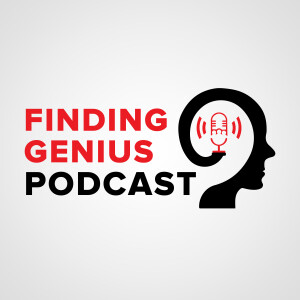
Bee Happy: Maximizing Honey Bee Characteristics for Healthy Bees with Juliana Rangel Posada
 2020-12-26
2020-12-26
The queen bee has to get it right when she mates, because she only has one intense mating session for the duration of her life. The queen bee's anatomy and basic honey bee biology work together for success and Julian Rangel Posada tells listeners how.
Listen and learn
- Why the queen flies a mile away to mate as well as other interesting details of honey bee social behavior,
- What the exact mechanics of honey bee mating are and why drones are "expensive" to maintain, and
- What she's researching about pollen choice and lipid-to-protein ratios that help bees maintain health and improve recovery from viruses they contract from types of mites.
Juliana Rangel Posada is an associate professor of apiculture in the Department of Entomology and leads the Texas A&M University Honey Bee Research Program. She studies biotic and abiotic factors affecting bee health. The number one problem for honey bees is the varroa mite, and she starts the conversation addressing how her lab showed that the chemicals used to treat the mites actually affects both the mites and bees.
The wax that makes up the honey comb absorbs the chemicals like a sponge, and bees grow and develop within this wax home, absorbing the chemicals. The chemical buildup causes queens to develop lower reproductive capacity and also affects drone sperm and viability. She shares various ways they advise beekeepers to mitigate this affect, including clearing out the wax every few years.
She also describes for listeners a detailed and fascinating description of honey bee matting, one of several honey bee behavioral adaptations evolved to increase genetic diversity and reproductive success. She explains the harsh life of the drone, reared for mating and killed off quickly after they've done their job. She also describes the drone's endophallus and how a queen manages multiple mates and their sperm by taking in this organ.
The next mate removes the endophallus of the previous one and so on, until she has sperm from multiple mates to continue producing eggs for years. In addition to reproductive studies, her lab is researching foraging behavior and nutrition to see if honey bees are using certain pollens with various ratios of lipid-to-proteins that affect their survivability.
For more, see her lab's Facebook page, facebook.com/TAMUhoneybeelab, which includes a "stay-at-home beekeeping series."
Available on Apple Podcasts: apple.co/2Os0myK
More Episodes
Create your
podcast in
minutes
- Full-featured podcast site
- Unlimited storage and bandwidth
- Comprehensive podcast stats
- Distribute to Apple Podcasts, Spotify, and more
- Make money with your podcast
It is Free
- Privacy Policy
- Cookie Policy
- Terms of Use
- Consent Preferences
- Copyright © 2015-2024 Podbean.com






